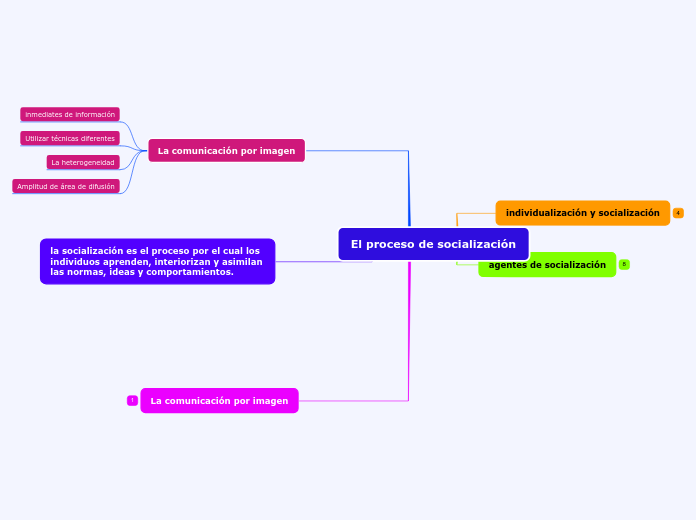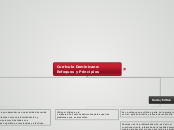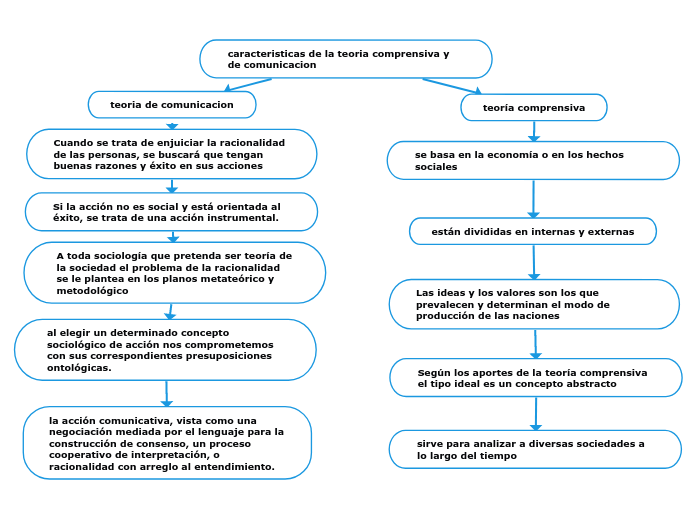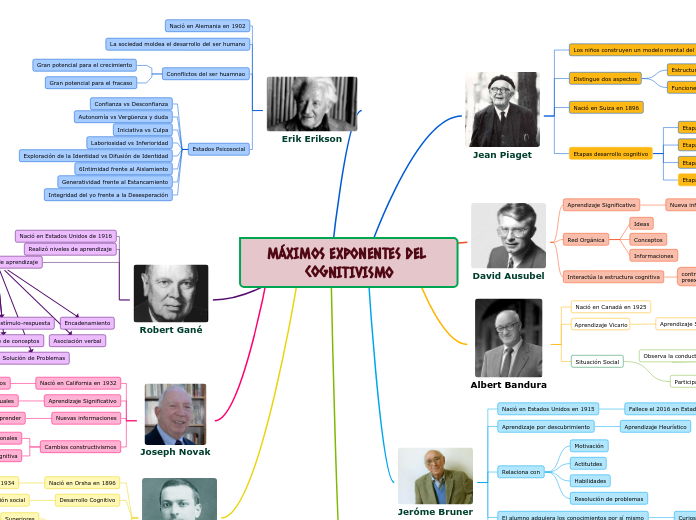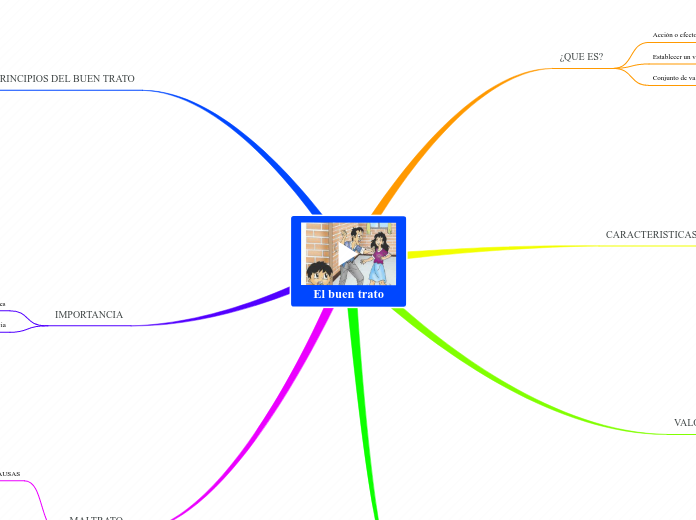El proceso de socialización
In linguistics, syntax is the set of rules, principles, and processes that govern the structure of sentences in a given language, usually including word order.
A compound sentence is a sentence that has at least two independent clauses joined by a comma, semicolon or conjunction. An independent clause is a clause that has a subject and verb and forms a complete thought.
Es el conjunto de procedimientos que los grupos de especialistas utilizan para vulgarizarin contenido.
Create your own compound sentences, using the coordinators above.
la socialización es el proceso por el cual los individuos aprenden, interiorizan y asimilan las normas, ideas y comportamientos.
A complex sentence is a sentence that contains an independent clause and one or more dependent clauses.
An independent clause can stand alone as a sentence, but a dependent clause even though it has a subject and a verb cannot stand alone.
La comunicación por imagen
Amplitud de área de difusión
La heterogeneidad
Utilizar técnicas diferentes
inmediates de información
agentes de socialización
Sirven de modelos sociales o agentes reforzadores
Los medios de comunicación
See the example below and try to create your own simple sentences.
Tim is driving the car with his mother.
Compañeros
See the example below and try to create your own simple sentences.
Tim is the driver.
Es decisiva para el aprendizaje de valores y actitudes.
La escuela
See the example below and try to create your own simple sentences.
Tim drives the car.
Es el lugar donde se aprenden normas, valores y pautas de comportamiento.
La familia
See the example below and try to create your own simple sentences.
Tim drives.
Es el primer agente, aporta la experiencia social más temprana y la más duradera
individualización y socialización
Sensibilidad social
The predicative is defined as an adjective or noun forming or contained in the predicate.
Its main trait is that it serves to express a property that is assigned to a 'subject'.
For e.g.: The dog is old.
Flexibilidad pra adoptar perspectivas sociales diferentes de las propias
Traditional grammar defines the object in a sentence as the entity that is acted upon by the subject.
Capacidad de juzgar las consecuencias de las acciones sociales
The predicate of a sentence is the part that modifies the subject in some way. Because the subject is the person, place, or thing that a sentence is about, the predicate must contain a verb explaining what the subject does and can also include a modifier.
Pensamiento de medios-fines y de soluciones alternativas.
The subject of a sentence is the person, place, thing, or idea that is doing or being something. You can find the subject of a sentence if you can find the verb.
Ask the question, 'Who or what 'verbs' or 'verbed'?' and the answer to that question is the subject.
